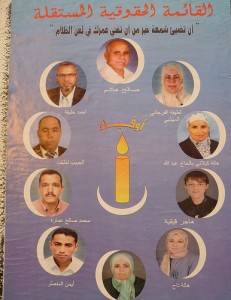Post-election Tunisia faces tricky questions of rights, freedoms, and advancement for all
Posted on: April 28, 2012, by : Editor Last week, Tunisia made history, becoming the first country to hold elections to fill 217 seats of its new assembly following the series of revolutions sweeping the Arab region, and specifically, the early 2011 uprising that unseated long-reigning President Ben Ali from power.
Last week, Tunisia made history, becoming the first country to hold elections to fill 217 seats of its new assembly following the series of revolutions sweeping the Arab region, and specifically, the early 2011 uprising that unseated long-reigning President Ben Ali from power.
The results have had mixed results thus far in Tunisia and across the globe. Organized over a five-month period, these were the first free elections in Tunisian history and the first elections held since 1956. International monitors and local Tunisians alike praised the elections for attracting over 80 parties and more than 80% of voters. While the results continue to shift as the hours go by—several votes and seats having been reevaluated due to campaign finance violations by candidates in question—overall results reveal that the self-labeled moderate Islamist party Al-Nahda won the leading number of seats with over 41% of votes. Approximately a third of the votes went to the leading liberal parties (e.g. Ettakol, the Congress for Republic Party, the Progressive Democratic Party), a positive step in showing that liberal voices will be a part of the next phase of decision-making in Tunisia.
Some are hopeful and have faith that Al-Nahda will honor its commitment to women’s rights and to enforce a modern interpretation of Islam, while others decry the lack of separation between religion and politics. In particular, many women fear that much of the progress they have won—leading the region early-on in granting women the right to vote, to divorce, and to earn equal wages to men—will be stripped away in favor of more conservative laws, despite repeated reassurance from Al-Nahda representatives. At the moment, women have already seen themselves excluded from key discussions and have witnessed the reprisal of debates on women’s freedom of speech and their right to equal employment. Laws against polygamy have also been called into question.
After women gave their blood, sweat and tears in the street alongside men demanding the same social, political and economic freedoms, women were excluded from vital decision-making bodies and dialogues. As plans for the elections developed, a positive sign was seen in the new election law requiring that every other candidate on party lists be a woman. However, with no regulation on where women were placed on the list, women were mostly put in the second slot and not the first, meaning for several parties who won only one seat in the assembly, there will be no female representation. As of today, twenty-eight lists will be represented in the assembly, and a reported 24% (49 seats) will be women. While this is perhaps more than some expected, it not only puts women in a minority position, but given that they are spread out over several parties, it means that the strength of their voice to influence decision-making will be weak.
Beyond women’s participation at the leadership level, many unregistered voters are reportedly youth and women. While some showed up on Sunday for last-minute registration, civic education and voter mobilization of women will be an important area to address in the next phase of rebuilding the political landscape. Overall, the next few months will largely determine how the new assembly leads Tunisians and responds to their demands, starting with the rewriting of the constitution and appointment of the interim government to handle daily affairs, including beginning to tackle the core priorities of the revolution. Women’s inclusion in this process is vital to ensuring that the rights and freedoms fought for in the streets in January are guaranteed in the new Tunisia.
Image courtesy of Flickr user Bellyglad under a Creative Commons license.
